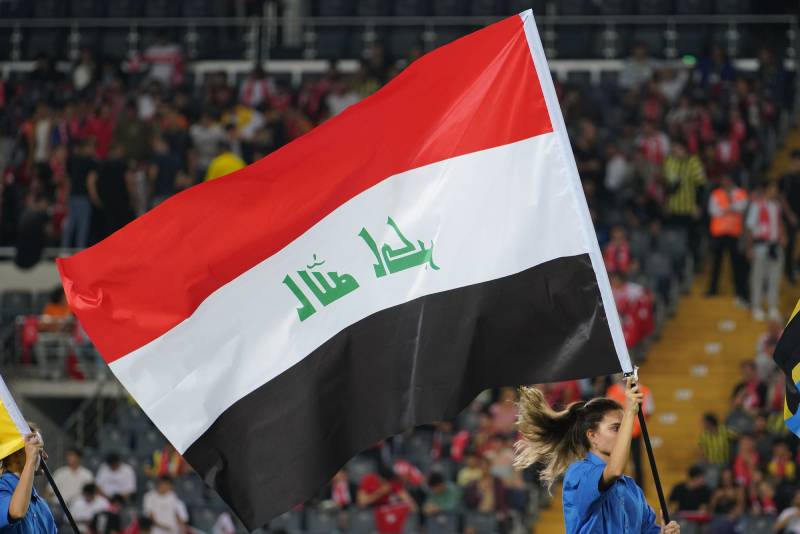Football
One of the greatest miracles in sports history? An Iraqi football fairy tale
The football world has seen many surprising victories. West Germany managed to win the World Cup in 1954, held nine years after the Second World War had totally devastated the country. But there is one victory that can literally be called a miracle.

The football world has seen many surprising victories. West Germany managed to win the World Cup in 1954, held nine years after the Second World War had totally devastated the country. Iceland, with the population of South Moravia’s Brno, managed to knock out England in the eighth round of Euro 2016. Or Leicester City, who sensationally won the Premier League in the 2015/16 season. But there is one victory that can literally be called a miracle.
The story written by the Iraqi national team at the 2007 Asian Cup simply has it all. A country torn apart by war, players hiding in exile, death threats, a fearless coach and a goal scorer who reunited the country, at least for a while.
In the 1980s, Iraq was considered the best team in the Middle East. In 1986, the country qualified for the World Cup. At the helm of Iraqi football in the 1980s and 1990s was a man called Uday Hussein.
Does his last name sound familiar? No wonder! Uday was the son of the country’s dictator, Saddam Hussein. This hilarious son of a bitch was prone to sadism. Countless people died at his hands and countless more Iraqi citizens were tortured because of him.
It soon became clear that Uday, due to his explosive and violent nature, would never take over the country from his father, despite being the eldest son. So it fell to him to lead the Iraqi Olympic Committee and the Iraqi Football Association.
But he had flirted with the world of football even earlier. He founded the Al Rasheed club. With this club, Uday dominated Iraqi football, as he threatened other teams with death and torture if they fielded their best players in matches against Al Rasheed.
At Al Rasheed, punishments were the order of the day. If players did not perform as Uday had hoped, they were often beaten and shot in the back of the head. Uday carried these practices over to the Iraqi national team. After the country failed to qualify for the 1994 World Cup in the U.S., players were forced to play soccer with a concrete ball.
At the start of the Iraq war, which lasted from 2003 to 2011, Uday was killed by US soldiers. The Americans later found several instruments of torture at the headquarters of the Iraqi Olympic Committee. After Saddam was also executed, the Hussein family was gone. But Iraq had another problem. The country was in total chaos, which was exploited by several armed groups. This started a civil war.
The country sent a team to the 2004 Olympics in Athens. Before the tournament, however, the German coach Bernd Stange, who had led the Iraqi team, resigned. Stange justified his decision on the grounds that his private driver had been executed and he feared for his life.
The key players on the team were Kurdish offensive midfielder Hawar Mulla Mohammed, the team’s driving force Nashat Akram and striker Younis Mahmoud. The team managed to beat Portugal, who had Cristiano Ronaldo on their roster, 4-2 to finish in fourth place.
Asian Championship 2007
The year was 2007. Around 100 people died every day in the capital Baghdad. Iraq had qualified for the Asian Championships, but the team’s preparations were in constant danger. The national team was receiving threats from various armed groups. This was because the team included Sunnis and Shiites as well as Muslim Kurds. All the players had to flee the country to the Jordanian exile.
Each of the national team has a story. Goalkeeper Noor Sabri found out shortly before the tournament that his brother-in-law had been killed just before the start of the Asian Championship. Hawar Mulla Mohamed used to take a machine gun to training for his protection.
In Jordan, Jorvan Viera is on the scene. The Brazilian coach took over a traumatized team and was ready for the toughest test of his career. Before the tournament began, Viera’s implementation team lost a physiotherapist who died in a bomb attack. The national football team was also rocked by the news that the Iraqi taekwondo team had also attempted to flee to Jordan. However, they were caught and every last one of them was executed.
The Asian Championships started with a 1-1 draw for Iraq against Thailand. But then the chaos-torn country delivered the first shock of the tournament. They beat the favourites Australia 3-1. In their last group match, they drew with Oman and qualified for the quarter-finals from first place. In the quarterfinals, Coach Viera’s team faced Vietnam, whom they managed to beat. Iraq won 3: 0.
After this victory, incredible scenes took place in the country. Thousands of Iraqis celebrated their team in the streets and the country was euphoric, at least for a while. In the semi-finals they faced South Korea, whom they managed to beat 1: 0 after penalties. The whole country was celebrating again.
But during the celebrations in Baghdad, a suicide bombing killed 30 people. During the same night, 20 more people died in other suicide bombings and at least 5 people died as a result of gunshot wounds.
The national team was logically shaken by this. Many of the players, led by Coach Viera, later recalled how they watched wordlessly the news on television where they saw what was happening in the country. It was also in play that the team would withdraw from the tournament. But the news ran an interview with the mother of Haider, the boy who died in one of the attacks. His mother pleaded with the national team on TV to win the tournament for her son.
In an emotional final, held in Jakarta, Indonesia, Iraq challenged the favourite from Saudi Arabia. In the 72nd minute of the match, the talisman of the selection, Younis Mahmoud, scored. He thus secured his country’s first and, for the time being, last victory at the Asian Championship.
After returning to the country, Mahmoud was critical of the US military. He demanded that the Americans leave his country immediately. His dream was to play in England. This did not come true as the UK denied Mahmoud’s family a visa.
So he accepted an offer in Qatar. Nashat Akram tried to sign for Manchester City. But he too was denied a visa by the UK. So he moved to the Netherlands. Hawar Mulla Mohammed signed with Anorthosis Famagusta of Cyprus and became the first Iraqi footballer to score in the Champions League.
The eight-year war in Iraq claimed around 160,000 victims. Of these, approximately 130 000 were civilians. This is one of the reasons why Iraq’s success in the 2007 Asian Cup is considered one of the greatest miracles in the history of sport.
Sources: Bleacher Report, Tifo Football

-
Bundesliga7 days ago
Leverkusen on the hunt again! The German champion is luring the former Liverpool star to his side. Stoper Matip is now without a contract
-
Football6 days ago
Will Soucek have a star competitor? West Ham are very interested in Kanté
-
Football6 days ago
A title run? Rakitic will play in his homeland for the first time, he will meet another Croatian player in Hajduk Split
-
More7 days ago
Lance Armstrong or The Greatest Cheat in Tour de France History







